Episode 272 - The In-N-Out Burger Legacy with Lynsi Snyder
In-N-Out Burger is one of the few local burger restaurants that has transcended into a cultural icon. What started as one of the first drive-thru restaurants ever in 1948, has grown into one of the most recognizable brands in the country with nearly 40,000 employees in millions of happy customers.
The restaurant was founded by Esther and Harry Snyder, a husband and wife team with a passion for excellent service and incredible quality. Now over 50 years later, their granddaughter Lynsi serves as the President of the company and carries on that legacy of loving employees, serving customers and boldly giving glory, and honor to God in the process.
Lynsi joins the show to talk about the in and out legacy as told in her new book, The Ins-N-Outs of In-N-Out Burger and to share how her faith has guided her leadership style through tragedy, challenges, and triumphs.
Important Links:
faithdrivenentrepreneur.org/podcastsurvey
All opinions expressed on this podcast, including the team and guests, are solely their opinions. Host and guests may maintain positions in the companies and securities discussed. This podcast is for informational purposes only and should not be relied upon as specific advice for any individual or organization.
Episode Transcript
Transcription is done by an AI software. While technology is an incredible tool to automate this process, there will be misspellings and typos that might accompany it. Please keep that in mind as you work through it.
Joseph Honescko: All right. Your plane lands at LAX. It's 10:00 at night, and you're starving. Maybe you're coming home or you're visiting the West Coast for business or pleasure. Whatever it is, it really doesn't matter. You know exactly where to go when you're in California needing a quick bite that never disappoints you grab your bag and you head to in and out. For a few uninitiated listeners, In-N-Out is probably the only local burger joint that has transcended into a national brand. The first store opened all the way back in 1948, just a few miles east of Los Angeles in Baldwin Park. It started as a husband and wife team, Esther and Harry Snyder, and they were passionate about excellent service and incredible quality. Now, over 50 years later, their granddaughter, Lynsi, serves as the president of the company. Carrying on that legacy of loving employees, serving customers, and boldly giving glory and honor to God in the process. Despite only having locations in a small handful of states, In-N-Out has become a cultural icon with nearly 40,000 employees and millions of happy customers. Lynsi joins the show to talk about the In-N-Out legacy, as told in her new book, The Ins and Outs of In-N-Out Burger. This is the Faith Driven Entrepreneur podcast. Let's get into it.
Lynsi Snyder: Gosh, I don't know where to start. I just remember when I was little, I. For sure had in and out spread in our fridge and in and out milk. So I guess that wasn't normal for people. But, you know, I wasn't in the middle of everything as I got older. Understood. My family actually moved to Northern California, so kind of sheltered from the, you know, granddaughter of the company experience. I was treated pretty normal and was just another kid up there, which was great. In sixth grade, the middle of the year when my uncle passed away and we actually moved to Southern California for the rest of that year. And it was terrible. That's when I was kind of exposed to being treated differently and being made fun of and, you know, some jealousy and all of that. And so my dad did not like that and decided to he would commute and moved us back up north. So so I had a great childhood on a ranch and, you know, drove four wheelers and caught frogs and snakes and did all those types of things. And and then I moved down here when I was 18, and it was a whirlwind because my dad passed away when I was 17. And so it was like losing my dad, turning 18, graduating, getting married. A lot.
Henry Kaestner: Faith has been a part of the in and out story for a long, long time. Just tell us about that.
Lynsi Snyder: So. It's interesting because my mom and dad took me to church and raised me to know, you know, I knew the Lord young, my grandma, she didn't have a huge faith impact on my life, but she impacted me in a lot of different ways. And the things I remember her saying about God, the things she said was just thanking God to have eyes, to see ears, to hear legs, to walk with it. You know, she would go through just being thankful to have those things. And I later realized part of it probably came from she had a her grandmother was basically blind and she had to push her all over the place in a wheelchair. She took care of her from a really young age. So, you know, I think her just appreciation for some of the simple things that we take for granted was very much in her heart. And she expressed that a lot. So you know she was, I believe, raised in the Methodist church. And, you know, I think she always had her faith. It was probably walked a little more silently because my grandpa was not a believer and he actually accepted the Lord on his deathbed. So praise God for that.
Henry Kaestner: Tell us about the different influences then on your own personal faith as you've grown as an adult.
Lynsi Snyder: Well, I think I think God just had a plan and made sure, you know, I, I knew I had this feeling when I was really little that when I had my mom and dad and, you know, had all those things a kid needed, like food, nourishment, protection, like love, I had those things. I still felt like something was missing. And, you know, I realized that that was God. And so once I acknowledged him, which was really young, again, I don't even remember the moment, because my longest memory other than that time where it was like, What's missing? I think since I was four, I believed and and talked to God and Jesus. So I was just immersed and learning about God, and I just always had that to fall back on because, you know, life took me some different directions and got me off the path at times. But I always I always came back.
Rusty Rueff: So your family's faith is totally infused inside of the culture of the company. And one of the things that you do that I want you to talk a little bit about is no matter when somebody joins the company, they have to spend time working in the restaurant, right? They have to be out there. What are the benefits of that and what does it yield in the future for executives who kind of grow up in the company or come from the outside and they get that first experience of being on the grill?
Lynsi Snyder: Oh, I'm going to correct you there first. Experience is definitely not on the grill because that's one of the highest positions in the store. That's. That's like running the ship. So, you know, some of the first spots to work in the store when you start would be in the dining room. And, you know, you watch a lot of training videos. So we will have someone from the outside, an executive or someone in a certain role. They're going to watch training videos. They're going to watch stuff about our history or culture. They're going to go to some classes. And yes, they'll get a uniform and they'll be put in front of customers, greeting them, wiping down tables, you know, doing some of those things that our new associates would be doing. And they might familiarize them with some other positions and, you know, show them around and have them work some other spots. But, you know, it's important because, you know, that's who we are. That's what we're all about, is about serving our customers and the standards we have, you know, wrapped around quality and cleanliness and service. And so whether you're working in the legal department or HR. Or somewhere else, you must know, you know, the store, the operation inside out, like you need to know about it. And you might not have worked all those positions that you need to understand and you need to understand the standards and all of those different areas and and why quality is so important and why we've done things a certain way for, you know, 75 years. And so it's really, you know, training is a huge part of in and out And looking back to our founders, my grandparents and my dad, my uncle, and how they led the way for us and showed us this is what in and out is all about. And we take that seriously and want to continue it.
Rusty Rueff: And then as a as a part of that training, where does the faith element show up? But when do you first introduce that as a new employees coming into the culture.
Lynsi Snyder: Yeah. So the faith piece in the company didn't actually become evident or actualized until my uncle put scriptures on various packaging of a product in 1988. We've traced it back to. There was a lot of debate over that year, and we finally landed on 1988 and he had gotten saved. And and this was really just a few years before he died, honestly. So it was. By the grace of God, you know, it's just wonderful. He was just a big personality, a joyful guy. And I think that he was just that exuberant. He's like, I want to share this. And we're a family company. You know, I'm a Christian. I want to put the faith out there. I'm not going to be ashamed. And so it was so cool that he did that. And, you know, it really it really gave me, I guess, that freedom to just continue it and take it further.
Joseph Honescko: Hey, everybody. If you've been listening to the show for a while, you probably noticed that this one feels just a little different. We had a more narrative intro. We jumped right into the guest and overall cut the time down quite a bit. You could say we're in a prototyping phase as we try to make the best podcast possible for you, our audience. And we can only do this if you give us your feedback. So if you can please take 2 minutes and go to faith driven entrepreneur dot org slash podcast survey to answer a few quick questions. We'll also put the link in the show description, but if you can do that, it will help us make sure that we're producing something that will continuously add value to your week. All right. Now back to the show.
Henry Kaestner: Have you ever thought about expanding to places where maybe there is a culture that would love the excellence of in and out? They'd love the brand that's being an iconic American West Coast brand. But the thing that you actually look at is the ability to be able to export a culture that is God honoring in a way where you have so much interaction with customers and a chance to talk about why you do what you do.
Lynsi Snyder: Oh, we can't because we don't compromise our quality ever. And our stores receive delivery every other day from our warehouses. So we do our own meats, we get the trucks in and we actually have our own guys, you know, take the meat off the bones, do the whole process and put it in our own patty machine and send those out to the stores we have. We take in our produce, we take in everything and we, you know, make sure everything is inspected and tested and perfect and then we send it to our stores. So the freshness factor would not allow us to expand like that.
Wiliam Norvell: I think a lot of entrepreneurs probably face this decision, right? Growth versus quality, this is what we kind of what we're talking about. What makes you hold firm in that and how do you stay true to it?
Lynsi Snyder: Yeah, I think, you know, for me, I'm a big protector and, you know, that goes both with, you know, protecting my family's legacy and what they've started and what I feel I've been entrusted with. You know, there's a stewardship sense with not just from my family, but from God. And then, you know, just just knowing that it's not about, you know, always making more money or, you know, oh, this would make us more known or whatever it is, you know, And I think I don't want to compromise and just wanting to protect and preserve what has been so successful and what's so special. So it's been really easy for me, honestly, to say no to a lot of, you know, new ideas or everybody else is doing mobile ordering. You should do mobile ordering, you know, there'll be more sales or, you know, you should do liquid cheese for the animal fries. It'll be faster, it's cheaper. You know, we just say no, because if it's something that's going to cut a corner off of quality, then it's a no. And it's not just quality of the product, it's quality of service. So for mobile ordering, you're going to change the In and out experience you're not going to have because part of the in and out experience is just being greeted with a smile. The service, you know, just taking care of the customer in that way, not just taking the order here, you know, it's different. So, you know, of course, there's a lot of things that are put in front of us, but it just feels, I don't know, I guess, natural for me to just protect.
Wiliam Norvell: That makes a lot of sense. And I'm curious because, you know, family businesses, of course, of this size and scale, where are places that you feel like your vision and your personality have been able to shine? And and how have you reconciled those with maybe what was and what needs to be?
Lynsi Snyder: Yeah, that's a great question. So, you know, some of the big things would be just the style of leadership, you know, from the era of my grandfather, even to my my uncle and my dad, there was a very, you know, fear and intimidation, get it done task driven, you know, boss associate type relationship there. And I think that that's something that with the help of a wonderful team and people buying into my vision we've turned that ship around and we we strive to lead by the style of servant leadership. And you know, we've done tons of workshops on just caring and training versus teaching and I think really investing in our people. And so we invest in them and turn they invest in others. And it just kind of trickles all around. And, you know, we're so focused on the family atmosphere. And I think I've definitely made an impact on the culture when it comes to just the closeness. And even though we're getting larger and larger, you know, we have our our leaders are brought together multiple times each year. And I've created a tradition that's been happening since 2009 where I host an event at my dad's ranch, and we have all of the divisional managers and up there it's called Club 48, and we get together and in the early years we would go grocery shopping together and cook together and, you know, have a campfire and do all these fun things. And of course, the new guys would get it pretty bad. But now it's grown into something where our travel and events team actually does the shopping and helps us put together a lot of the activities because it's grown from just a handful of people to now, you know, with everyone, probably around 70 people. And it's special. It's like a family reunion slash fraternity slash jackass maybe. And everyone just, you know, from different states, that wouldn't normally interact or able to just kind of let their hair down and be at ease. And they can talk about work because we always do, but also get into each other's lives and just relax and have fun. And we do different team building things. But I feel like I've really brought people together and having not just the culture of yes, that my uncle really started with, you know, the excellence and training. But I think the culture of love with our leadership, I feel like I've been able to kind of infuse that and and, you know, and for me, it comes from God's love. Like, I feel so forgiven and I feel God's grace and I feel so much of his love over my life because of, you know, knowing him and failing him and asking for forgiveness and failing him and then coming back and just knowing that his love reaches past anything we can imagine to different people. And so my goal is for people to experience God's love working that I know. And hopefully that is even experienced in the atmosphere as a customer.
Henry Kaestner: That's a great line. My goal is that my employees might experience God's love by working in and out. And how many employees do you have? Again?
Lynsi Snyder: Over 38,000.
Henry Kaestner: That's quite a it's quite a congregation.
Rusty Rueff: To that point of, you know, God's love working through the organization. I know that you have supported and started for in and out a foundation and that foundation, that slave to nothing. And then you personally have a foundation that you've created around the a ministry called the Army of Love. Tell us about both of those and why you started them. And then. How is that also showing up as a part of this reinforcing of God's love being shared through the company?
Lynsi Snyder: Yeah. So my grandmother, my uncle, my mom basically started the In and out Burger Foundation, which is fighting child abuse back in the eighties. And so, you know, as I was leading, I just felt like, wow, you know, a lot of time has gone by and, you know, to whom much is given, much is required. I feel like in and out success just we need to do more. We need to have another cause. And my husband and I had talked about, you know, being involved with fighting substance abuse because it affected both of our lives. I lost my father. He lost his younger brother. And currently he had at the time had another younger brother on heroin, on the streets. And so, you know, we just both felt so passionate about doing something there. And so as we're going down that road to start that foundation, God just put it on my heart to include human trafficking, you know, fighting that as well. So that's where slave to nothing came from. That's the number two, because there's, you know, the two different causes there. So, you know, that was something that launched another one of our can drives because in April we had the can drive since the eighties where we put the cans out. We put the information about the Children's Foundation in and out burger Foundation, and we have a 3 to 1 donation match. And so for these donations in and out, it's going to give back. And, you know, all of our causes in and out puts the money towards it. We're not taking from any of the donations. So so every penny that is donated goes directly to fight these. And so slave to nothing. It's the same model we have two can drive for slave to nothing one for Human Trafficking Awareness Month in January Prevention and then also October for substance abuse. So now we have the can drives three different months out of the year and three different focuses, different fights. And so, you know, that's just, you know, using the platform that God's given us to try to change lives and make a difference. And, you know, the third part of our Mission purpose statement is actually assisting our communities to become stronger, safer, better place to live. And so it's also fulfilling the third part of our Mission Purpose statement.
Henry Kaestner: I'm impacted by the fact that you've got by leading by example with your faith and saying things like you just said, to whom much is given, much is expected, is great leadership by example to 38,000. I'd tell you that about a third of your customers at least know that in and out is motivated by their faith, largely because the way that you print on your products, I mean, you can't go there more than once or twice without seeing what's unique about your faith. And so any thoughts that you have about being bold?
Lynsi Snyder: Yeah, you know, I think it sounds silly, but the Instagram account has been an area where I've been really bold with my faith, and that's probably where I catch the most persecution and is on there as well. So I try to discipline myself to not read comments, but it's, you know, posting Bible verses and just sharing about different things and even pieces of my story or my life on there and some of the maybe some podcast or some faith interviews even, you know, putting the link on. And so I think I try to be pretty transparent about everything. Now I know there's certain things I can stand up or be more vocal about, but then. We might not have the same platform ten years from now if I really did that. So I've talked to some different pastors and leaders and they just say, hey, you know, pray about the ones to really be a strong voice for. And the others just fight behind the scenes. And so, you know, that's just something through prayer and talking to my husband and kind of leaning on some other spiritual people that I trust and love and just getting counsel. I do. But as far as being bold in my faith, I think that I mean, you should be uncompromised, you know, just needs to be all out. And again, like, you know, within our training, we teach a lot of biblical principles. We teach a lot of things that come right out of the Bible. And and then we talk about some. We we actually make the connection. And so we don't hear a lot from the inside being against that. Now, of course, there are some, but it's not. There are people that are invested in the vision and get behind it because they're usually good things. They're good things that they know are going to make them better leaders. So I don't know. I mean, I think for anyone as a believer in business, no matter what you do, just. Don't compromise your faith and don't shy away. I believe the days are while we know our days are numbered, but we're looking at end times and we need to be a brighter light now more than ever and need to shine and not hide it under a basket.
Henry Kaestner: So I see that on the Instagram account. You do such a great job of sharing your faith, celebrating different milestones at the company, and then celebrating your friends. Your Instagram posts are very selfless. They're recognizing in appreciating other people. I don't know whether these are people are just friends or if they're coworkers, but you do that a lot. Is that a deliberate management thing that you're doing?
Lynsi Snyder: That's just what I'm passionate about. I guess. People I love I love people. I know that, you know, God's obviously first, but the most tangible way of loving him is loving others. And so I think I'm a pretty I'm definitely an outgoing people type person and I'm a big hugger and I just respect and love so many people around me. And, you know, I've lost the closest people to me. I mean, my dad and my uncle were so close to me and losing them young just made me appreciate the people around me. So I don't want to take them for granted and I want them to know that I love them.
Wiliam Norvell: Yeah. Thank you so much for walking through that. And unfortunately we have to come to a close and we'd love to come back to God's word in the Scripture. And that could be something you're reading right now, could be something that's been on your heart your whole life, but just love to see if you wouldn't mind sharing some piece of God's word that's important to you with our audience.
Lynsi Snyder: You know, my goodness, there's so many pieces. There's a lot of verses that I can call out that have brought like freedom more freedom in my life. And, you know, just being transparent. And, you know, I think it's Galatians, it says confessing our trespass to one another so that you may be healed. The fervent prayer of a righteous man is availeth much so just, you know, that's something that I did a lot of. And I feel like that can be an area in even Christian leaders lives where they might just hold on to something and say, well, God has forgiven me, but there's power and actually speaking these things out, releasing them. Because if there's anything that holds you from sharing those things in your testimony, that means there's shame attached to it. There's fear, there's shame. And, you know, to be more free, it's really, again, the truth. The truth will set you free. And, you know, God's love can cover absolutely everything. And because I've been a believer all of my life and I've made such huge mistakes and fallen away that I hope that my life can speak to other believers that maybe feel like they've lost hope or retired God's grace, you know, where there's just not enough for them anymore. So, yeah, I just know that loving him first. You know in Matthew, loving God and loving others, you know, loving our neighbors as ourself, that's just my life goal. And I think that there's so many ways we can live that out. And, you know, my kids should be able to share that about me and, you know, people around me. And if people around you don't know that, then we have to go back to the drawing board.
Joseph Honescko: Thanks for listening to the Faith Driven Entrepreneur podcast. Our ministry exists to equip and resource entrepreneurs just like you with content and community. We know entrepreneurship can be a lonely journey, but it doesn't have to be. We've got groups that meet in churches, coffee shops, living rooms and boardrooms around the world. Find one in your area or volunteer to lead one and bring this global movement to your own backyard. There's no cost, no catch, just connection. Find out more at faith driven entrepreneur talk.





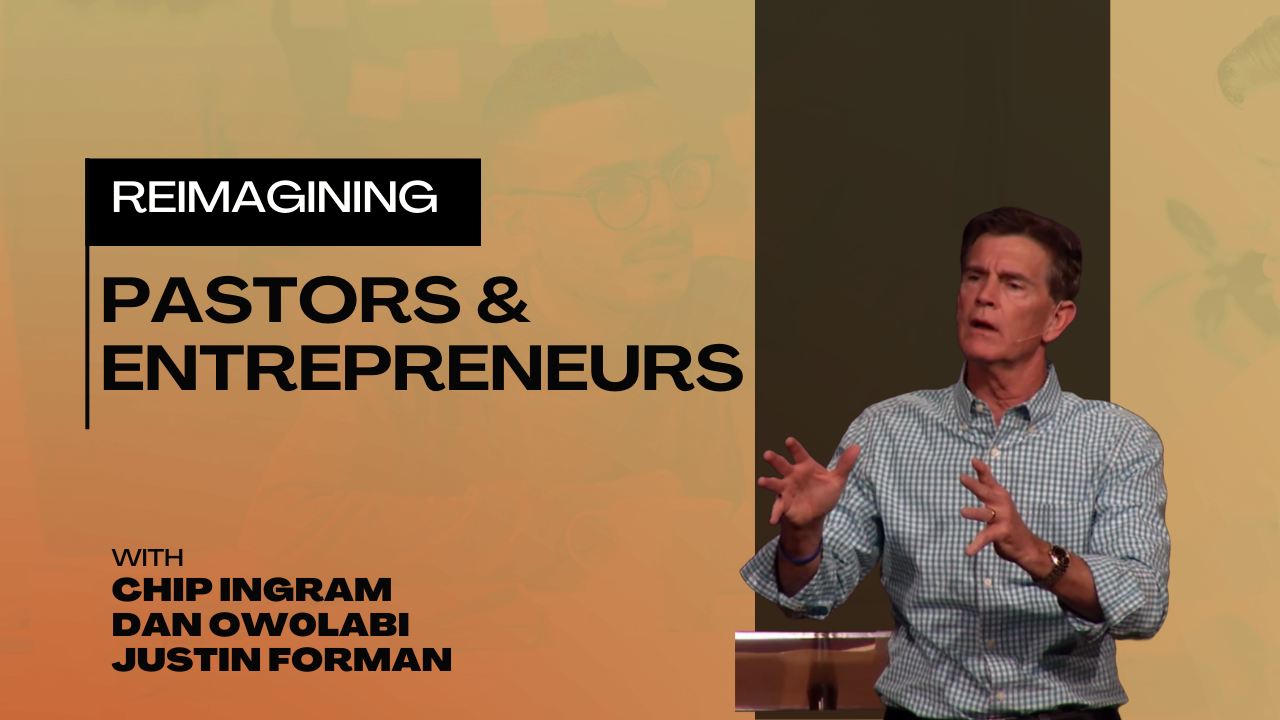
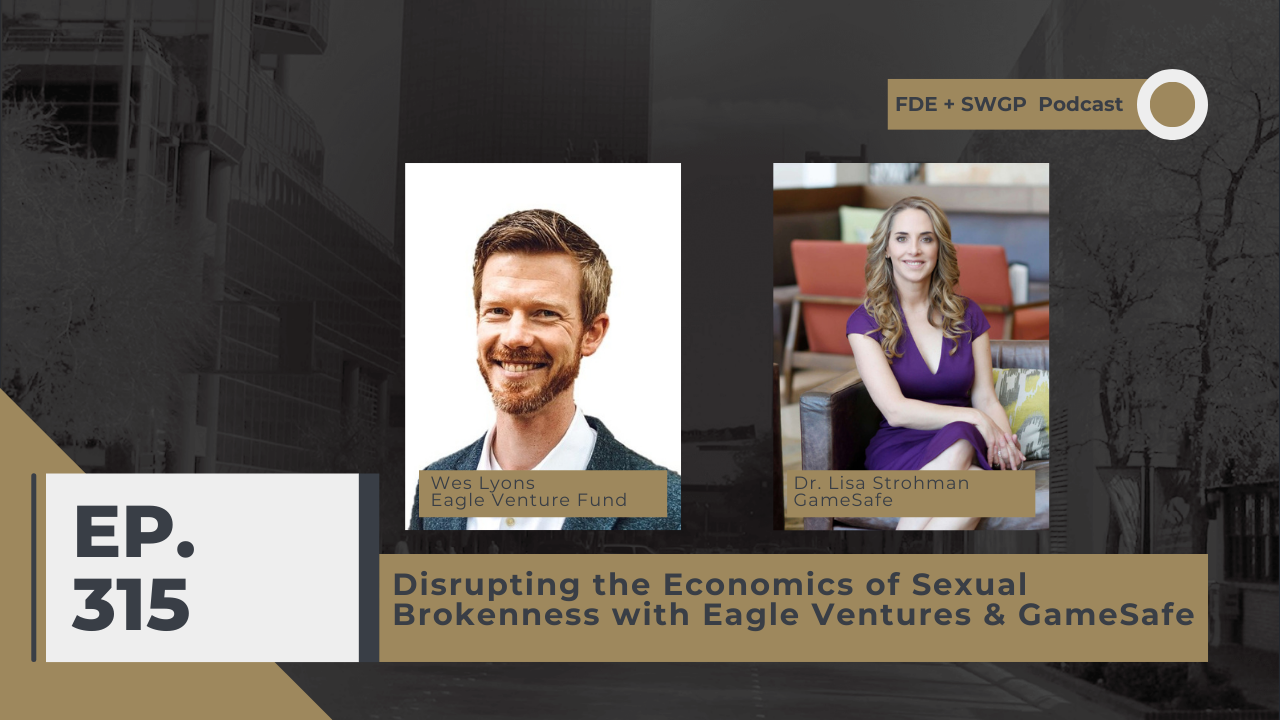
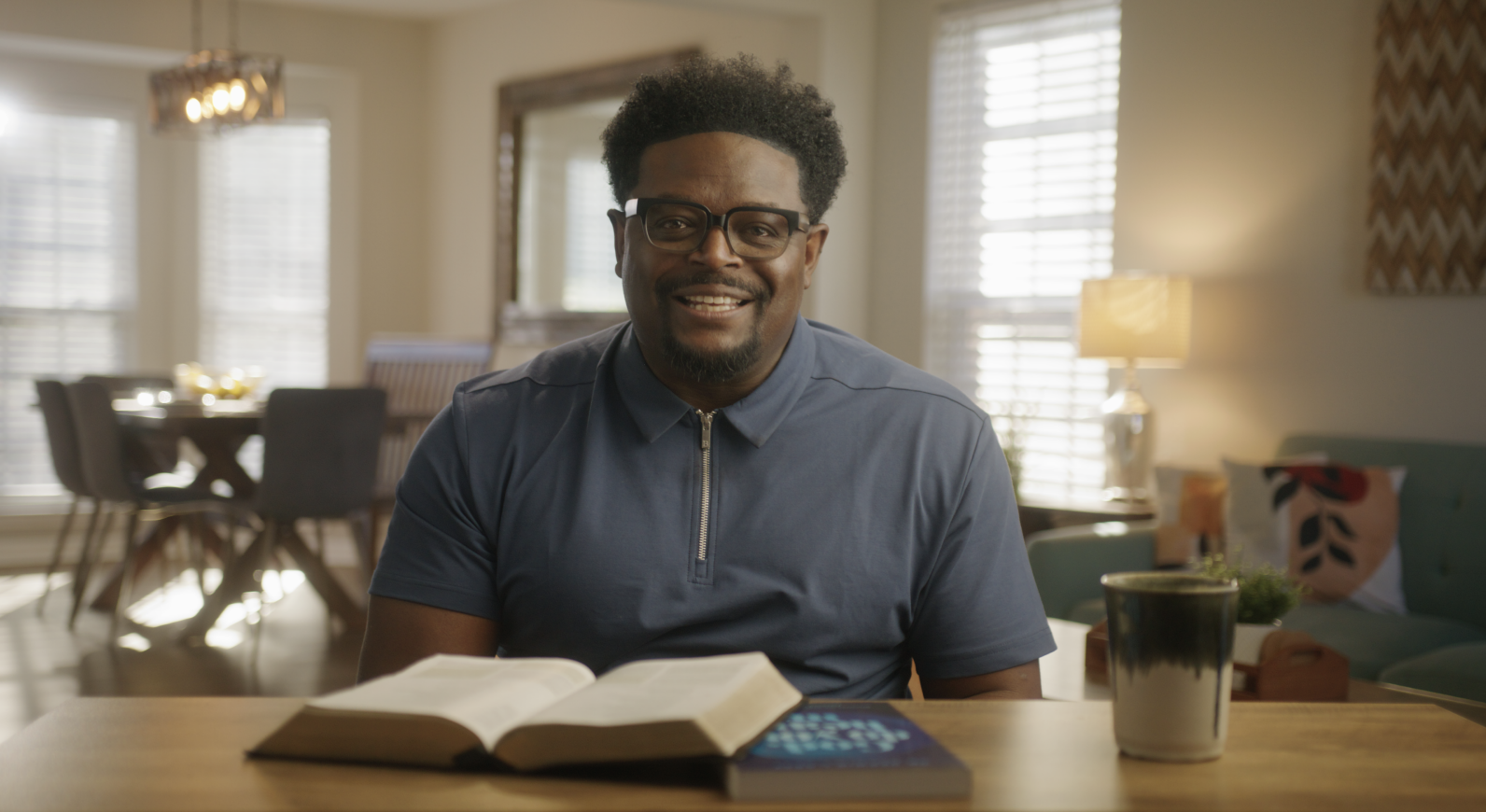
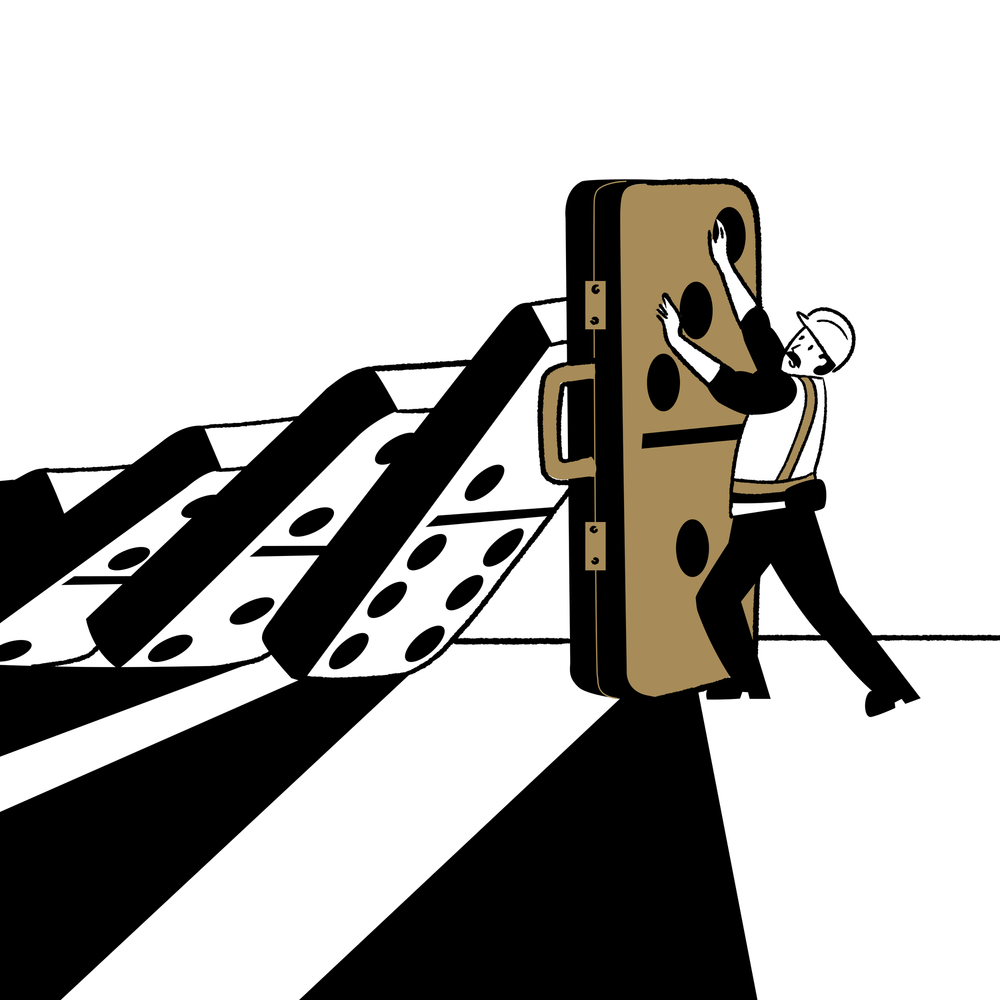
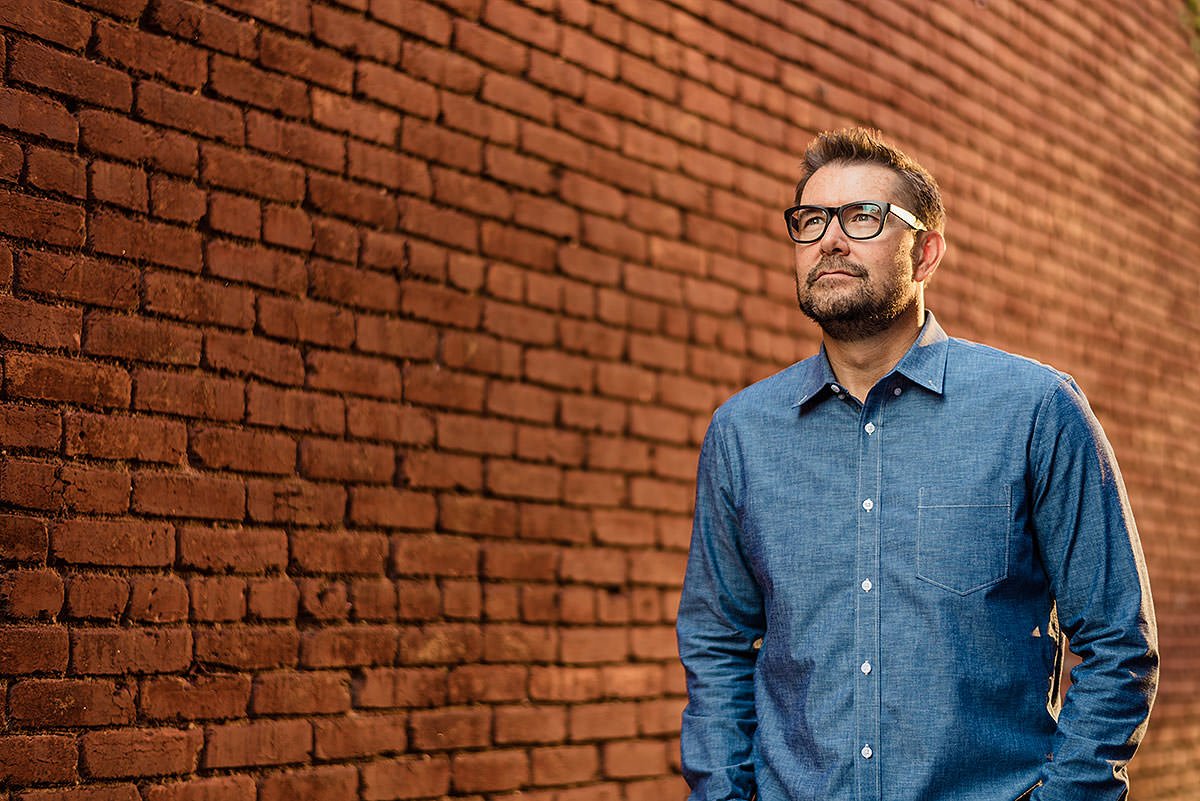
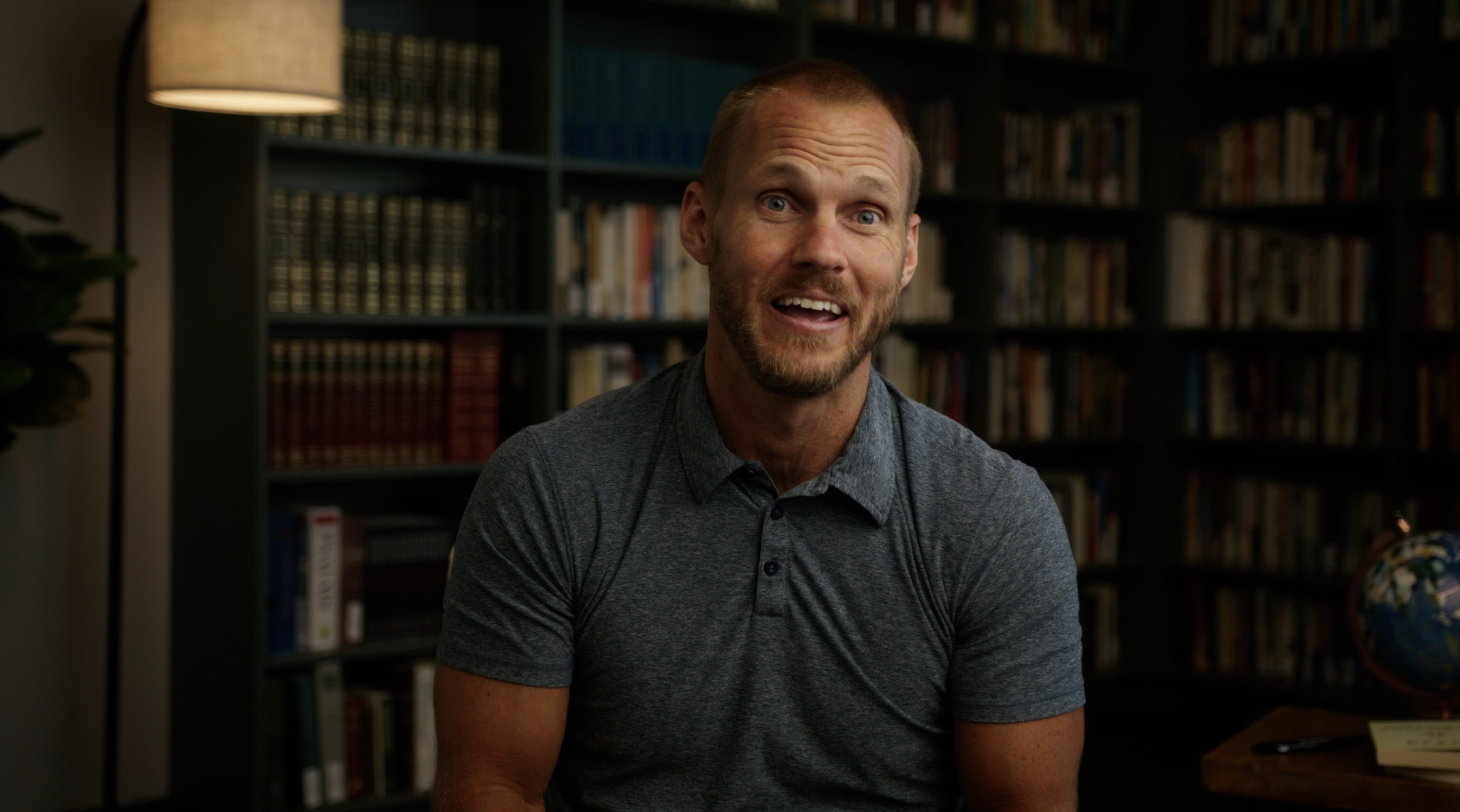
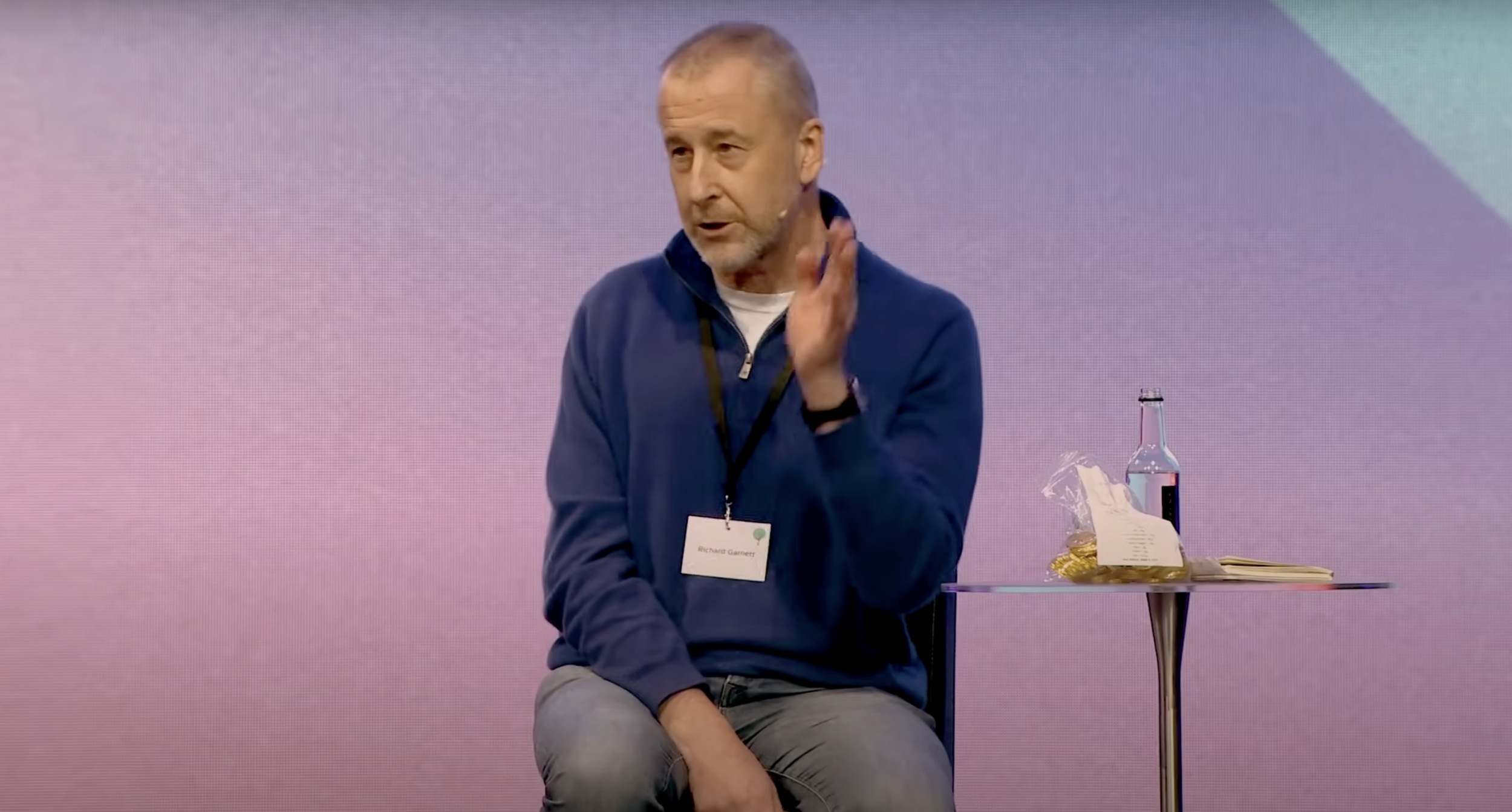
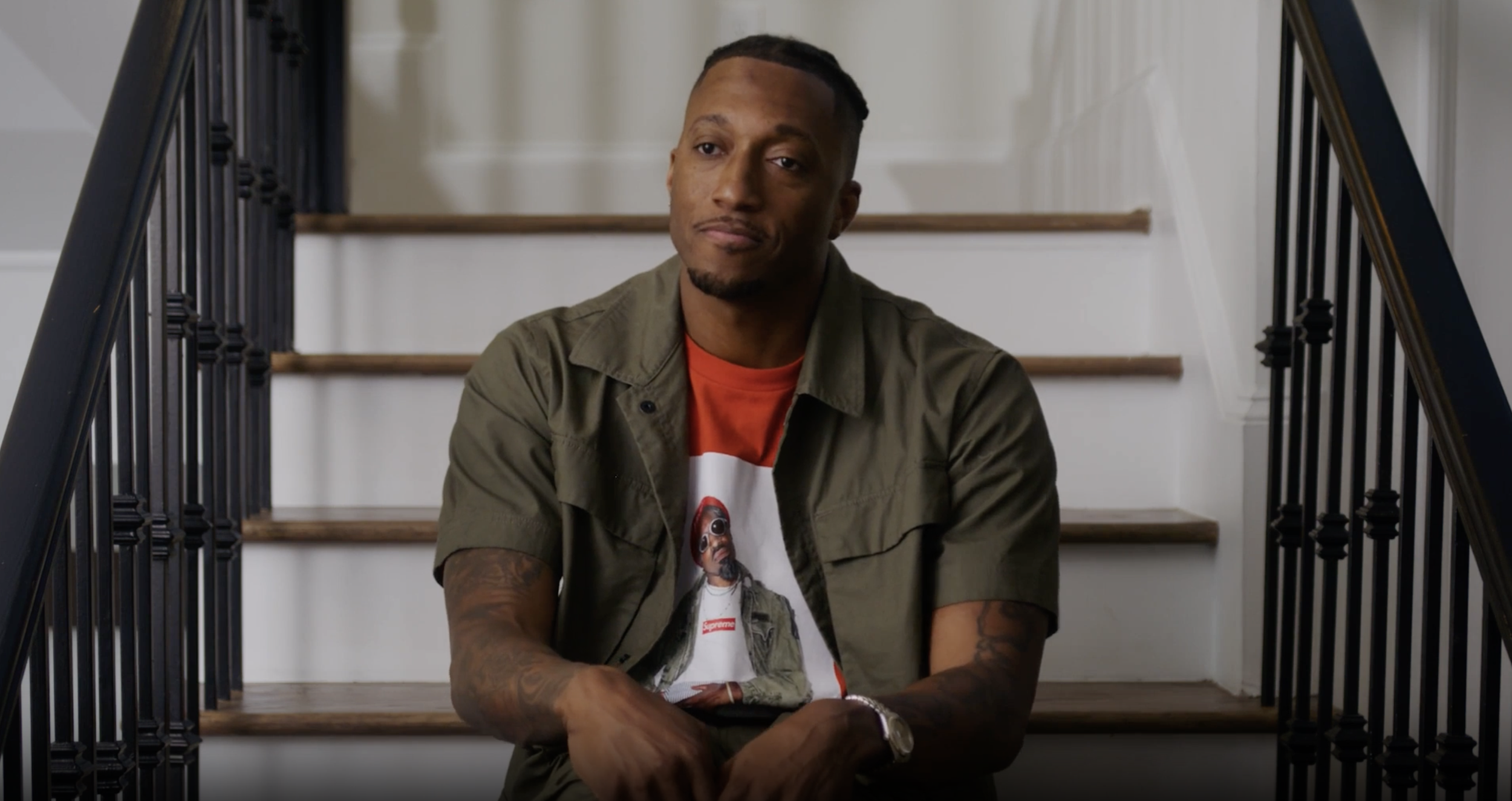
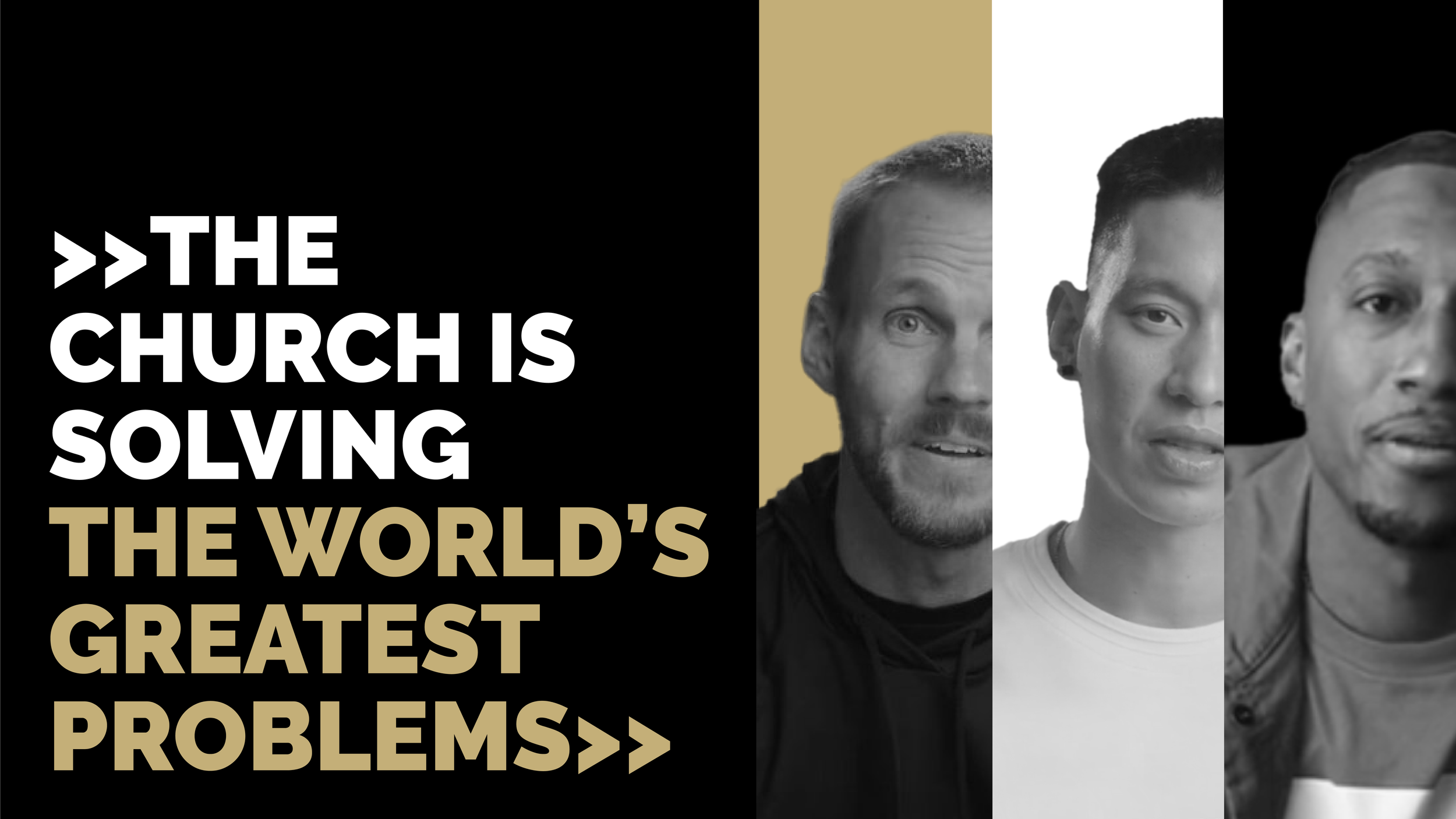
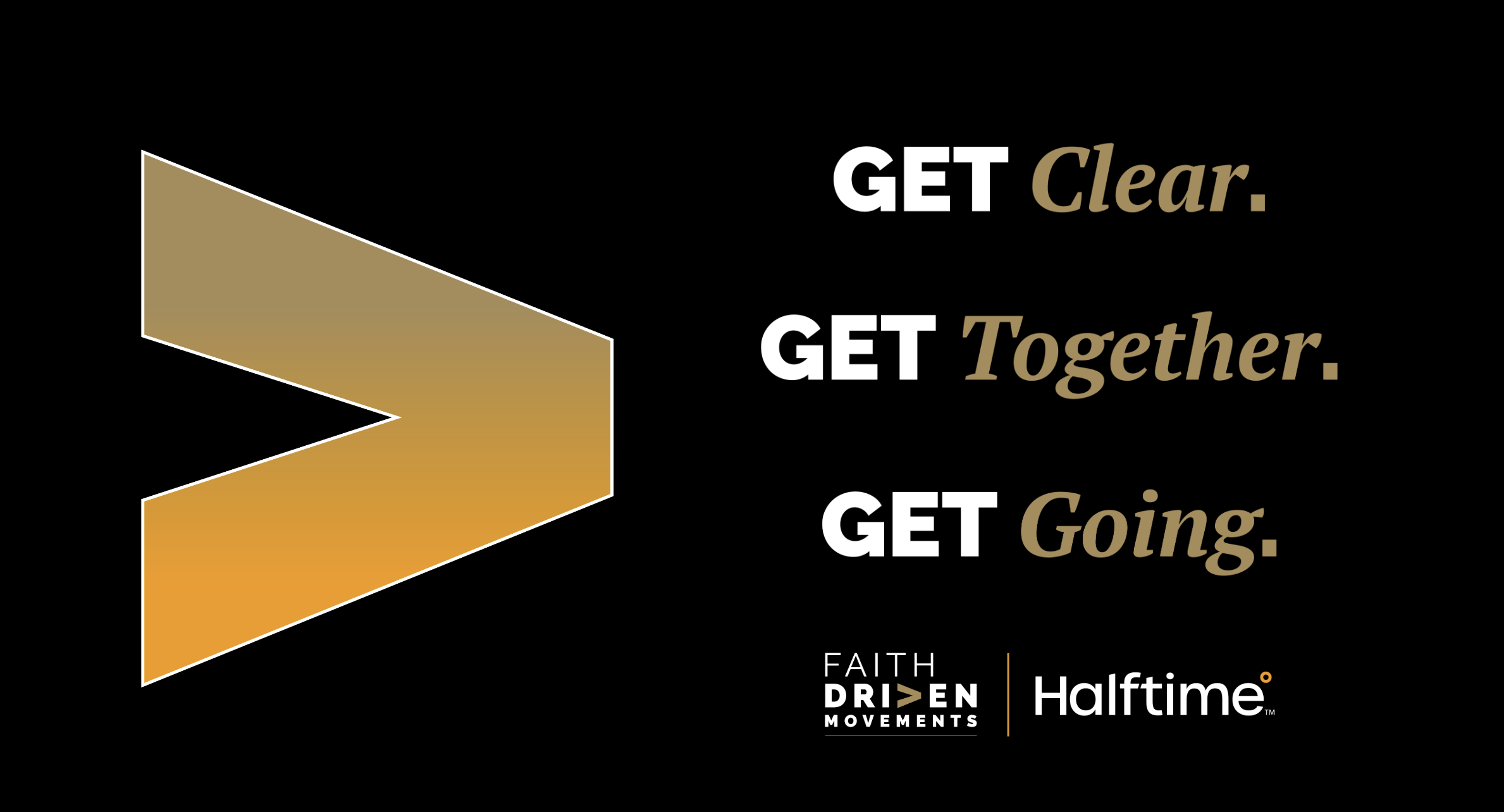
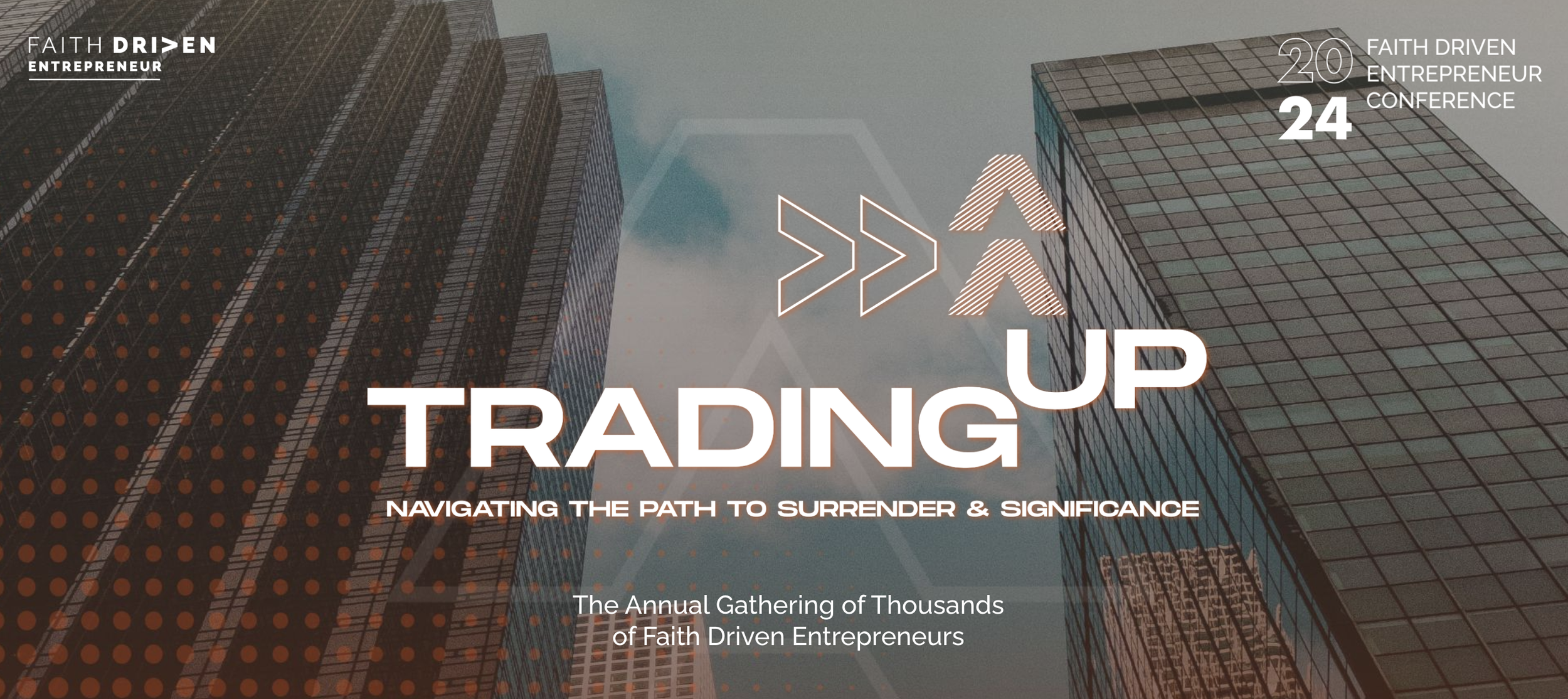
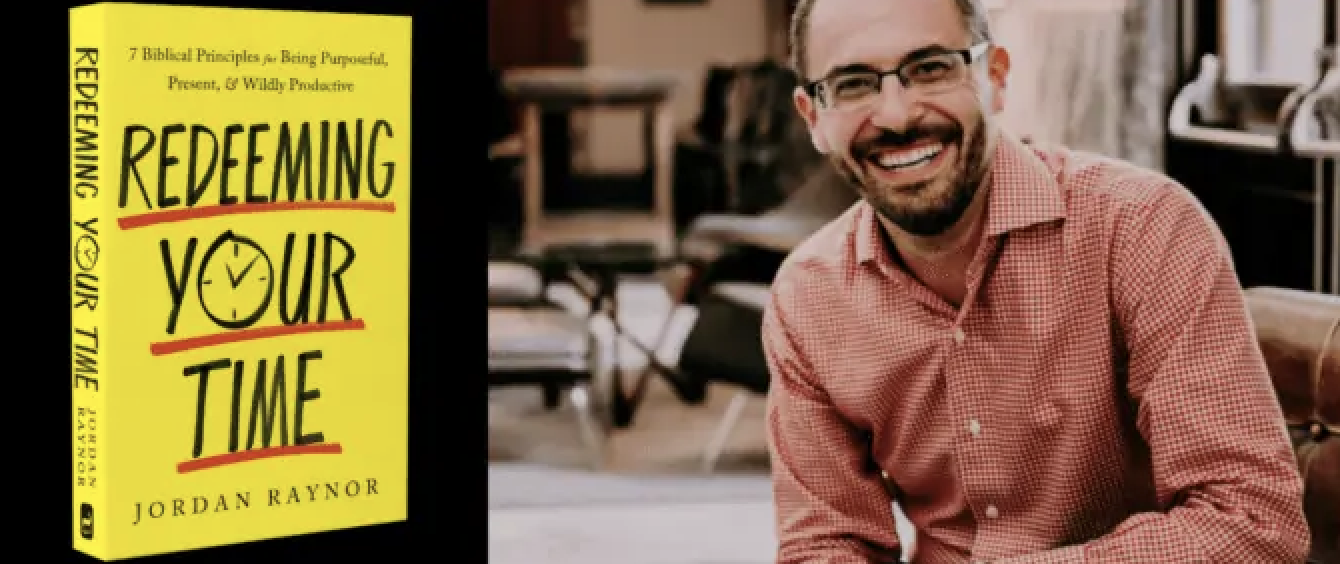
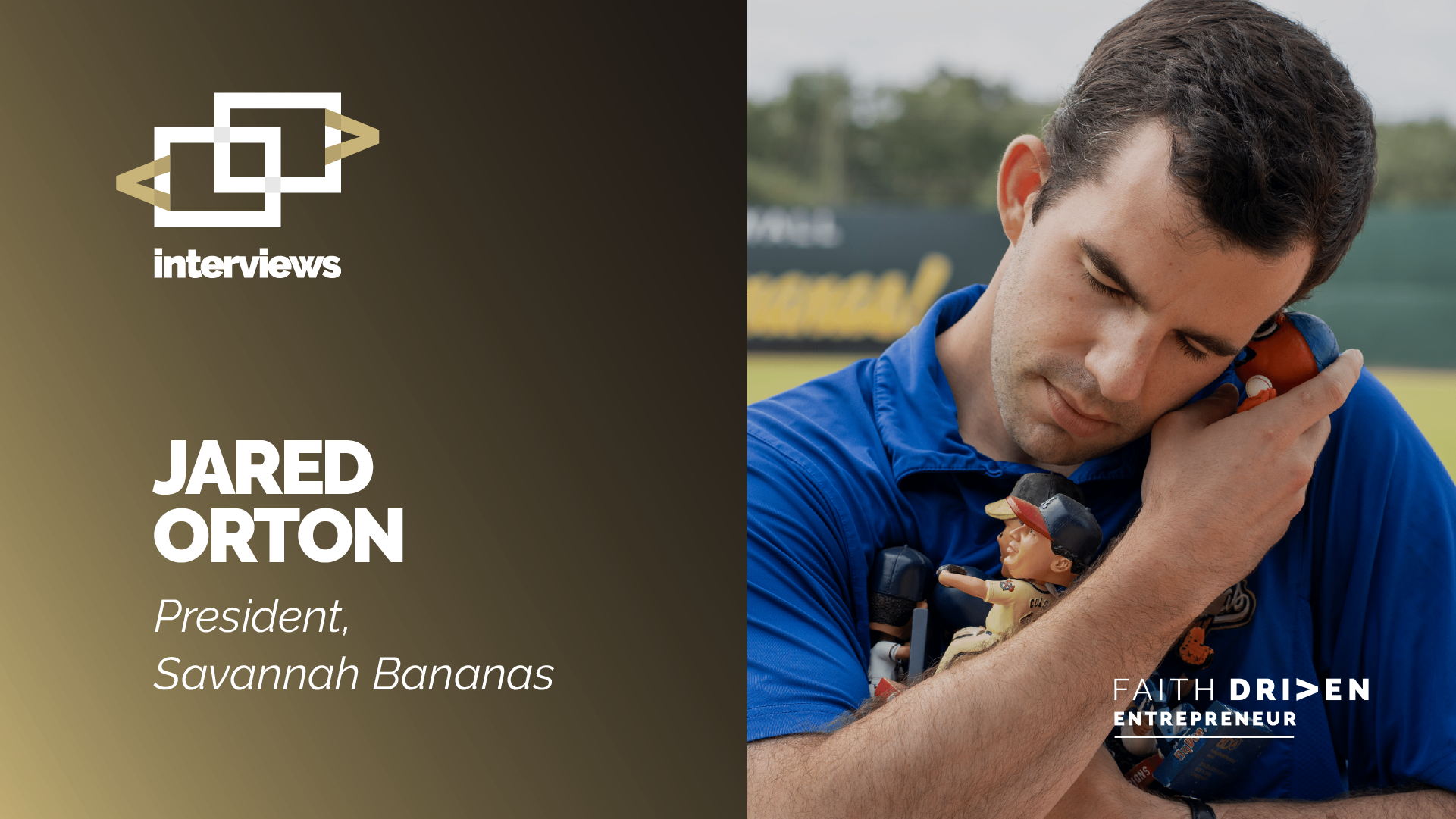
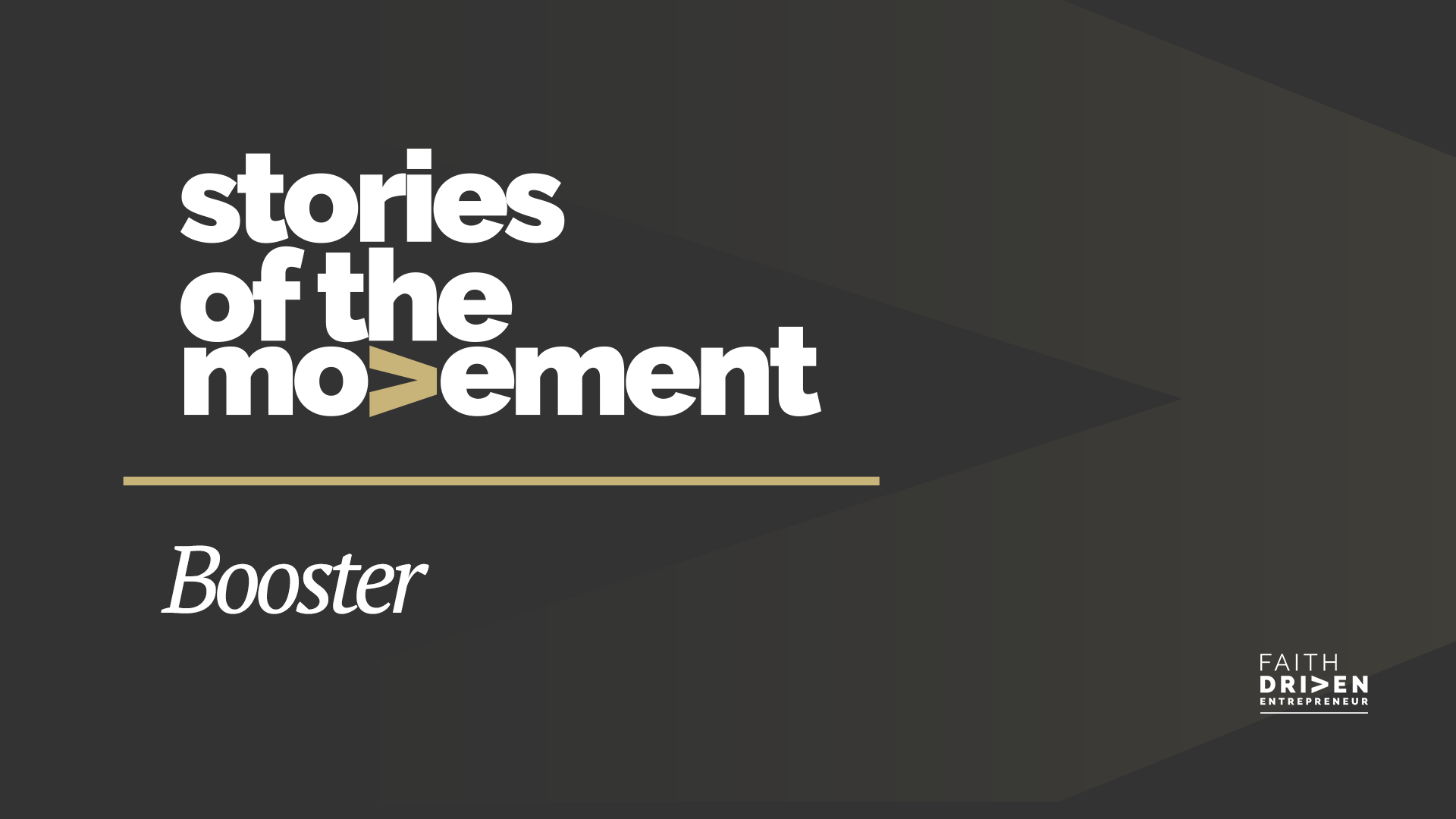
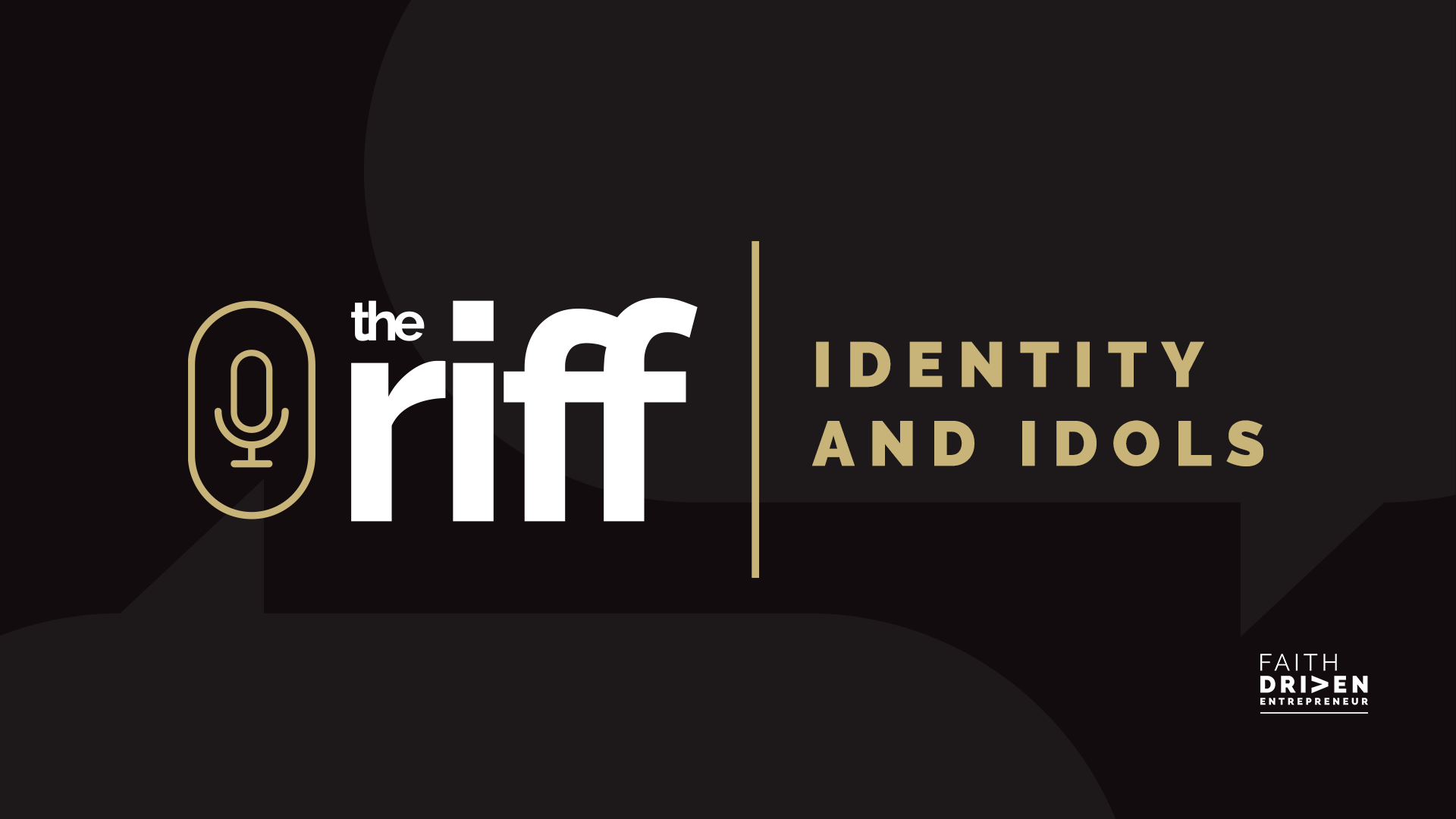
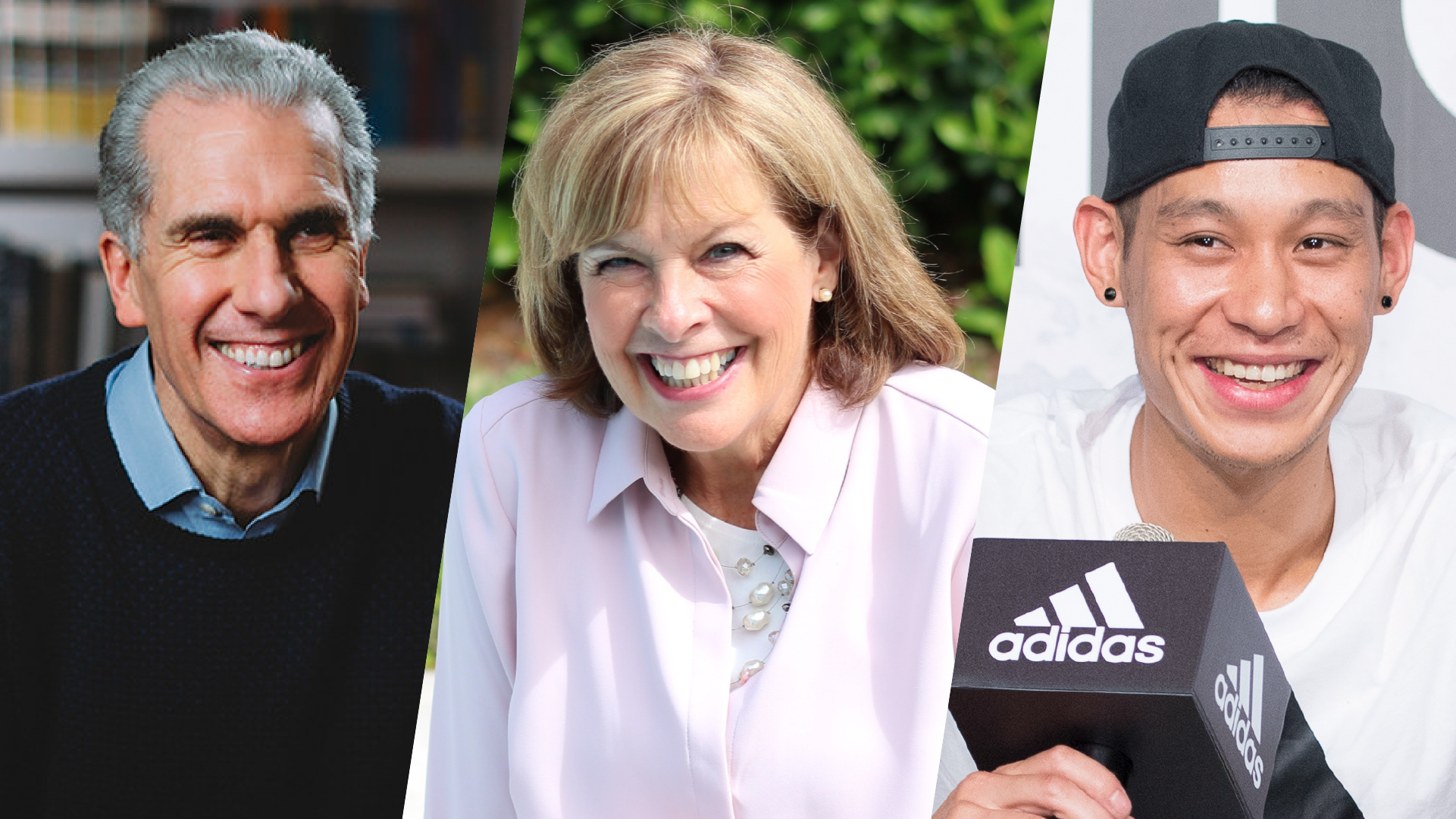
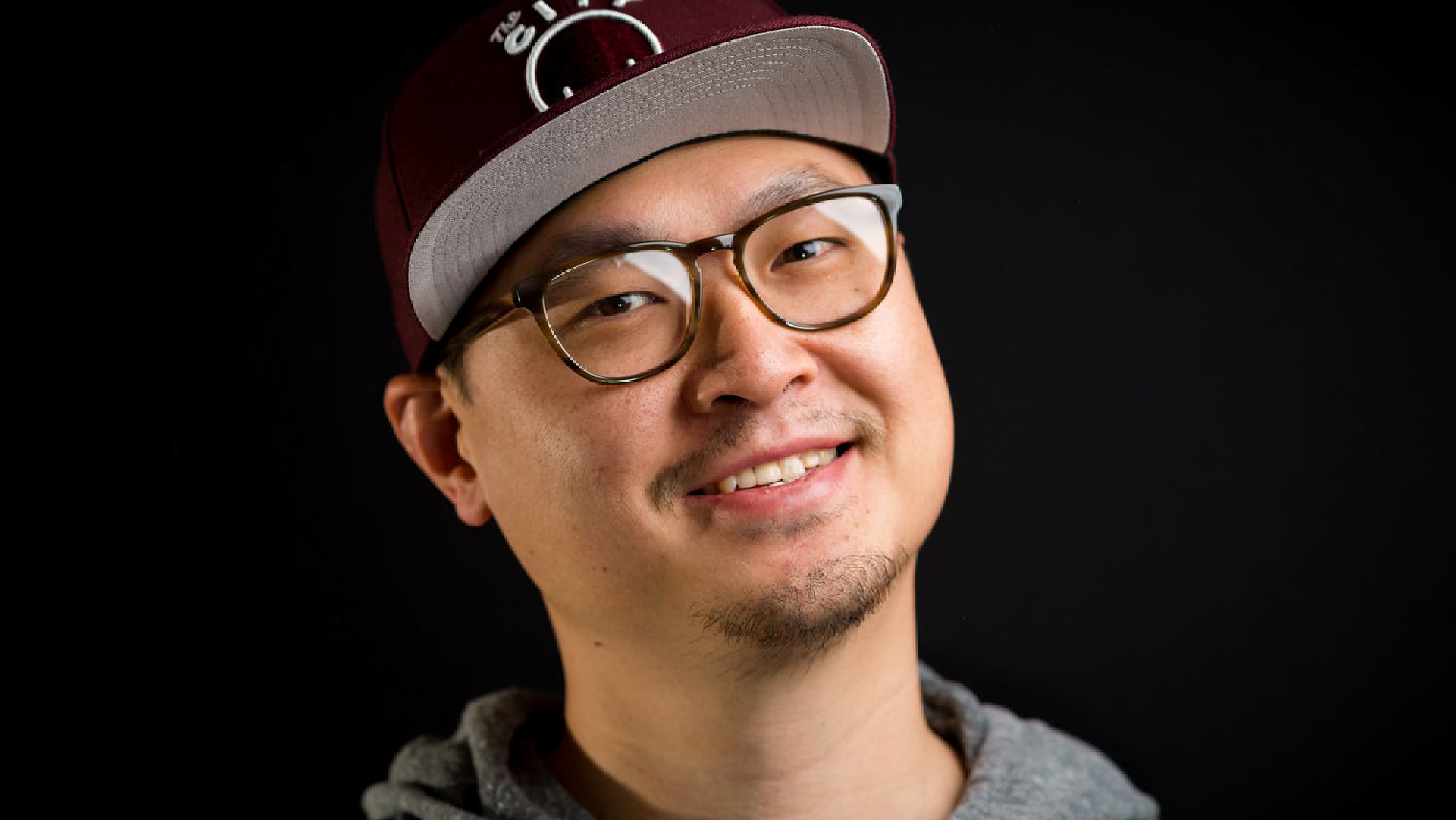
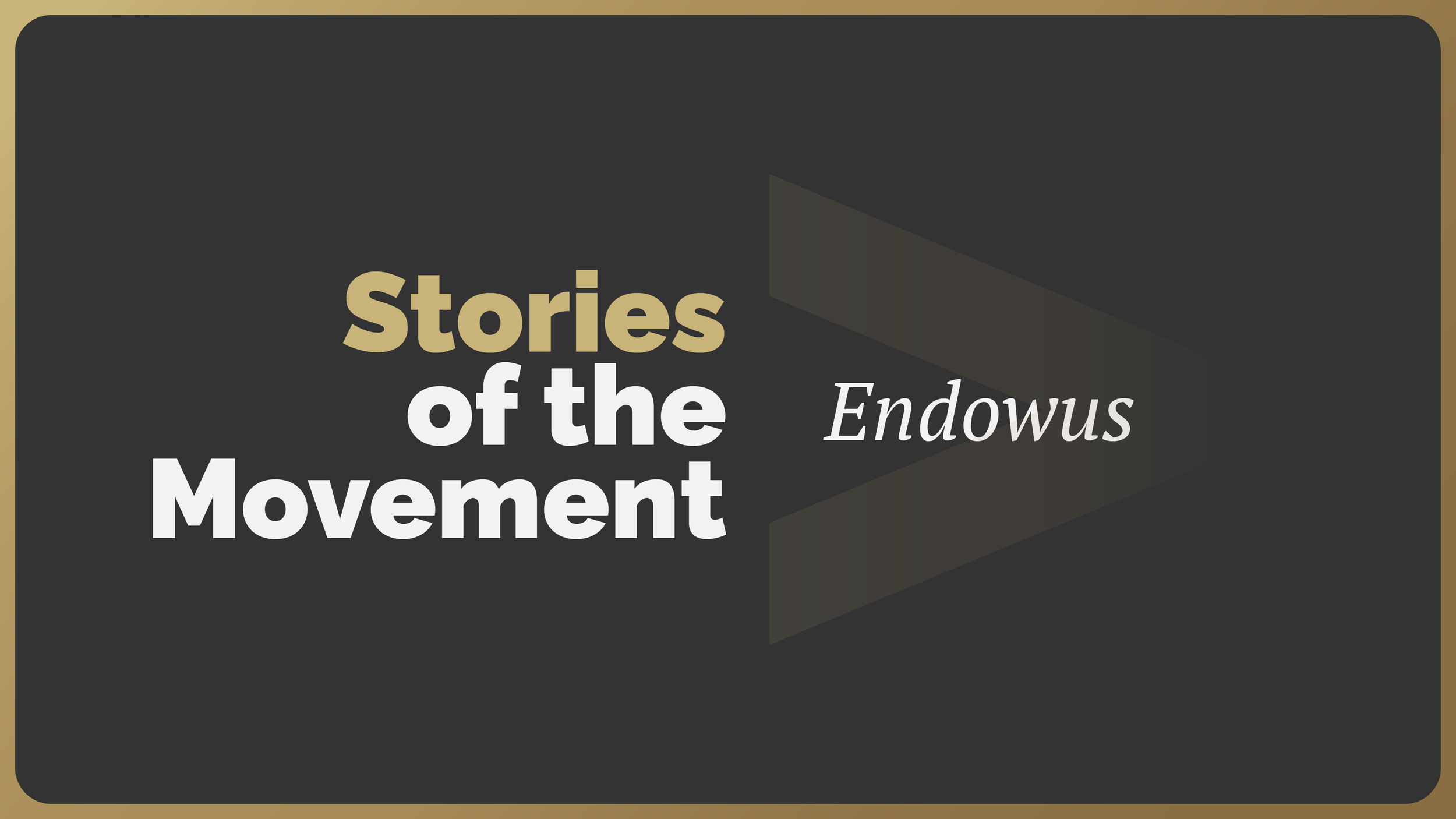

Follow the podcast